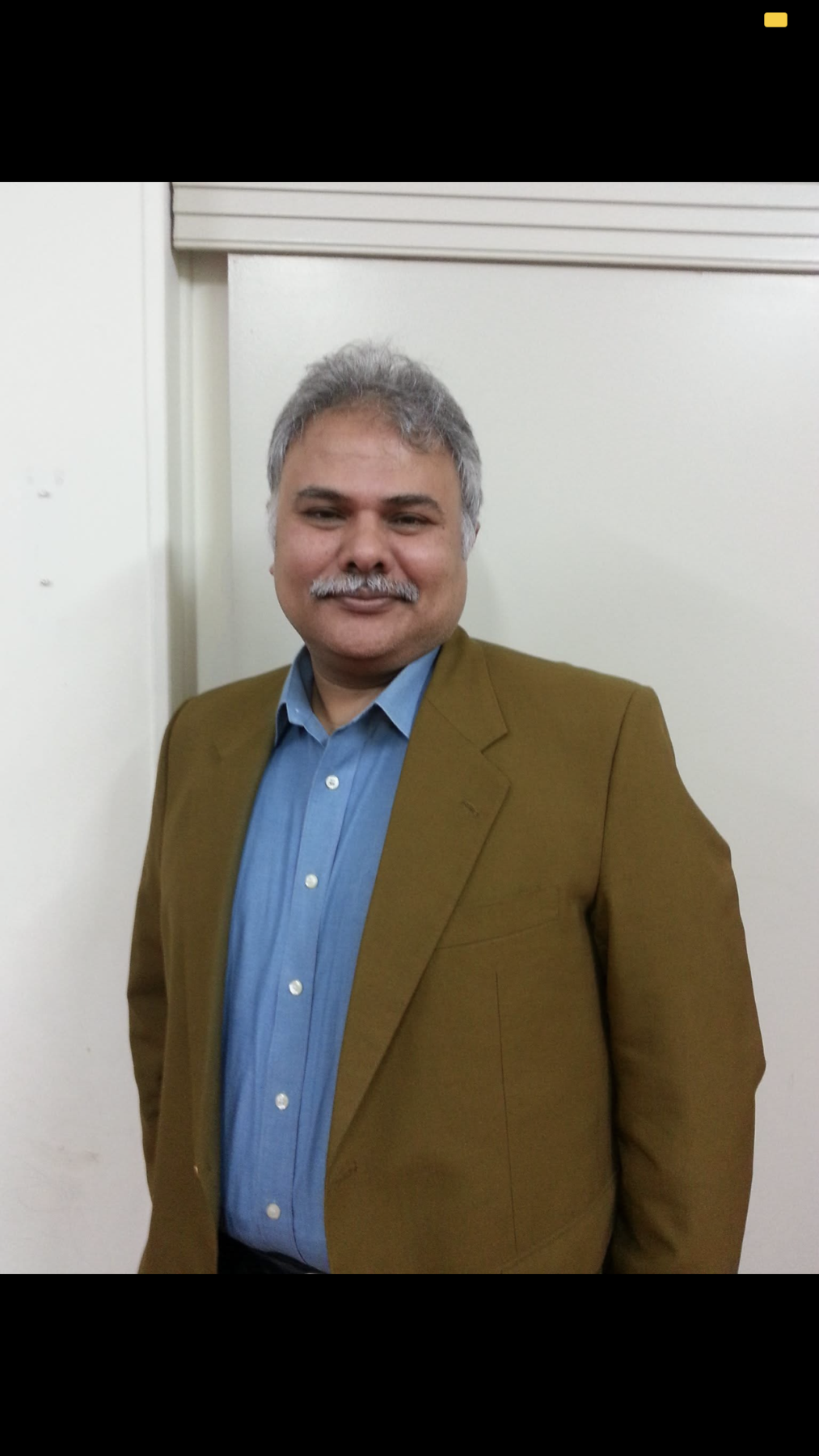Dr Zarrar Javaid

BSc (Electrical Engineering), MSc (Computer Engineering), PhD (Engineering Science), New Zealand Certificate of Adult and Tertiary Teaching
Position
Senior Lecturer
Teaching area
Software Development, Image Processing, Database, Data Structures, Operating Systems, Web Design
Biography
Dr Zarrar Javaid is a dedicated lecturer with extensive experience in software development, programming, and digital technologies. He holds a PhD in Engineering Science from The University of Auckland, where his research focused on image processing and 3D reconstruction of knee cartilage for medical applications.
Dr Javaid has over 20 years of tertiary teaching experience in New Zealand and internationally. At MIT, he teaches courses across web development, programming foundations, database systems, and applied data structures, using a range of technologies including JavaScript, C/C++, and MATLAB. He is committed to creating inclusive, hands-on learning environments that equip students with real-world digital skills.
In addition to teaching, Dr Javaid actively engages in research and professional development, with recent training in artificial intelligence and machine learning through AWS Academy. His research portfolio includes the development of novel segmentation and compression techniques, with applications ranging from medical diagnostics to motion picture processing. He continues to mentor students, contribute to curriculum enhancement, and pursue applied research at the intersection of computing and healthcare. His work has contributed significantly to medical imaging and has been published in several international journals and IEEE conferences.
Beyond his academic and researcher role, Dr Javaid has contributed extensively to community engagement through leadership roles with the Pakistan Association of New Zealand. He also contributes to the wider community through volunteer leadership and mentorship roles.
Why I love MIT
As a teacher at Manukau Institute of Technology (MIT), I love the institute’s commitment to student-centered learning, innovation, and community engagement. I appreciate the supportive environment, collaborative colleagues, and opportunities for professional growth. MIT’s strong connections with industry partners and focus on practical skills development enable me to deliver relevant and impactful education to my students. I’m proud to be part of an institution that values diversity, inclusivity, and student success.
Manukau Institute of Technology (MIT) offers hands-on, industry-focused learning with practical skills development. Graduates are job-ready and in high demand due to industry-designed programmes. MIT’s supportive environment and state-of-the-art facilities foster a sense of community. Graduates can pursue careers in trades, technology, healthcare, business, and creative industries, with strong industry connections leading to various career opportunities. By studying at MIT, students gain the skills and experience needed to succeed in their chosen careers.
Publications
- Zarrar Javaid, Fergus Perks, Peter J. McNair, and Charles P. Unsworth, “A Geometrical Heuristic Image Processing Approach for the Automatic Detection & Quantification of Type-IV Crater Lesion Pathology in the Femoral Cartilage of the Human Knee”. Int. Journal of Image Processing, Volume (10) issue (4), 214-228 (Nov 2016).
- Zarrar Javaid, “Fast 3D Model of Reconstruction of the Knee Articular Cartilage and Automatic Detection of Chondral Damage/Osteoarthritic Craters using Image Processing Methodologies”. PhD Thesis (June 2016).
- Zarrar Javaid, Mark G. Boocock, Peter J. McNair, and Charles P. Unsworth, “Contour Interpolated Radial Basis Functions with Spline Boundary Correction for Fast 3d Reconstruction of the Human Articular Cartilage from MR Images“, Med. Phys. 43 (3), 1187-1199 (March 2016).
- Zarrar Javaid, Charles P. Unsworth, Mark G. Boocock, Peter J. McNair, “Fast Detection & Modelling of the Real Osteoarthritic Holes in the Human Knee with Contour Interpolated Radial Basis Functions”. In Engineering in Medicine and Biology Society (EMBC), 36th Annual International Conference of the IEEE 2014 Aug 26 (pp. 2348-2351).
- Zarrar Javaid, Charles P. Unsworth, Mark G. Boocock, Peter J. McNair, “Fast Identification & Modelling of Osteoarthritic Holes in the Human Knee with Contour Interpolated Radial Basis Functions”. In Engineering in Medicine and Biology Society (EMBC), 35th Annual International Conference of the IEEE 2013 Jul 3 (pp. 4438-4441).
- Zarrar Javaid, Charles P. Unsworth, Mark G. Boocock, Peter J. McNair, “Automatic Identification of Simulated Osteoarthritic Holes in the Human Patellar Cartilage in MRI images with Radial Basis Functions”. Proceedings of the EPSM conference, Gold Coast Australia, December 2, 2012.
- Zarrar Javaid, Charles P. Unsworth, Mark G. Boocock, Peter J. McNair, “Uniform Sub- Sampling in MRI images to allow for fast Radial Basis Function Reconstruction of the Patellar Cartilage”. Proceedings of the EPSM conference, Gold Coast Australia, December 2, 2012.
- Zarrar Javaid, Charles P. Unsworth, Mark G. Boocock, Peter J. McNair, “Reconstructing the Tibio-Femoral Articular Cartilage of the Knee Joint using Image Segmentation”. Proceedings of the EPSM-ABEC conference, Melbourne, December 05, 2010.
- Engr. Mobashira Alvi, Zarrar Javaid, “Face Detection Using Skin Color Information”, ICCSA 2006 California, USA, June 2006.
- Engr. Madiha Shamsi, Engr. Arqash Sarah Hashmi, Zarrar Javaid, “Fingerprint Verification – A Hybrid Approach”, APEC 2005, GIK, Topi, Pakistan, December 2005.
Scholarly activities
Attended following trainings/courses:
- The GenAI module of the AWS Academy Machine Learning Foundations course
- The Machine Learning module of the AWS Academy
- AWS Academy GenAI Bootcamp – Introduction to Prompt Engineering
- Completed Faculty of Engineering Teaching Assistant Accreditation Programme
Research interests
- Developed a 3D Reconstruction Technique (Contour Interpolated Radial Basis Functions) for 3D Rendering of the articular cartilage.
- Developed an automatic method for detecting, quantifying and 3D rendering of OA craters from MR images of the knee.
- Used Data Analysis to evaluate Region-Based Segmentation Technique (Region grow) and compared p-values with the established techniques.
- Developed Segmentation technique for the cartilage segmentation from MR images of the knee.
- Studied different Image Compression techniques and used advantages of these techniques to design and develop an Adaptive Motion-JPEG Technique, which was used for compressing Motion pictures.
Award and grants
- Recipient of PhD Scholarship
- Secured 2nd position in MSc
- Won a grant for MRI scans of knee from CAMRI
Memberships and affiliations
- IEEE
- Life member PEC



